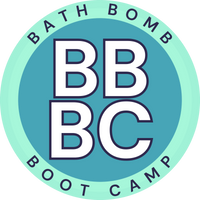What Are The Differences Between Handmade And Commercial Soap?
The most common question soap makers get is: what is the difference between your soaps and the soaps I can buy at the store?
With all the glossy advertising that companies produce trying to convince people to buy their soaps, it can be hard for people see the benefits of handmade soap, but the differences between handmade soap and commercial soap are vast.
First off, commercial soap isn’t even real soap when compared to the way soap has always been made. Commercial soap is actually made up of detergents, fragrance oils and chemical hardeners and all its moisturizing glycerin is usually stripped out for use in more expensive products. This is why many people now see soap as harsh and drying when, in reality, it should do the opposite.
Handmade soap has fewer ingredients that are often higher quality and purer and the glycerin produced in the saponification process is always left in, making these soaps a soothing salve for tender skin.
The fragrance oils used by commercial soap manufacturers to produce strange, unnatural scents like ‘Fresh Meadow’ and ‘Floral Bounty’ can contain many harsh chemicals and carcinogens. This is a jarring difference from the naturally sourced essential oils used by most soap makers. These oils are pure and high-grade and offer many benefits beyond just smelling good.
Handmade soap is ultimately a much better option for your skin. Any skin type can benefit from its use, but people who suffer from skin conditions like rosacea, sensitivity, folliculitis and psoriasis can see amazing results from using handmade soaps that have been carefully made with natural ingredients to produce certain results. Commercial soaps, on the other hand, are all fabricated to do one thing, which is produce a high lather that strips moisture from the skin, and have a heavy scent made from chemicals.
Making your own soap is like cooking, knitting or painting; it takes love, patience and practice to get it right. People who invest their time and money into hand making their own soaps produce higher quality soaps that will do wonders for your skin. Ditch the chemical sludge and try it out!
Making Hemp Soap Part1 from ValhallaFarms Soap on Vimeo.
Best Places To Sell Soap
Farmers’ Markets
A great place to sell your handmade soaps is at your local farmers’ markets. Geared towards local, sustainable produce and small businesses, farmers’ markets allow you to rent a table or booth for one weekend or day to see how your products will fare. Another great thing about farmers’ markets is that you will be on hand to talk about your soap and demonstrate its benefits.
Local Health Stores
Health stores are often happy to support small, local businesses that make an effort to create healthy, natural products. Your handmade soap will be right at home among the natural hygiene products, herbs and supplements in your local health store.
Etsy
Etsy is one of the best-known online marketplaces to sell homemade and handmade goods. Artisans and craftspeople flock to Etsy for its ease of use and its great blog on marketplace and selling tips. Etsy also allows you to open up your handmade soap market to international buyers.
Craft Fairs
Especially popular around Christmas, craft fairs happen year round. Craft fairs attract a lot of people that may not usually go looking for handmade hygiene products. They can be a great spot to talk about your wares with local shoppers and to network with other suppliers.
ArtFire
The indie marketplace of ArtFire is easy to use and has a great community feel. Focused on handcrafted pieces, ArtFire is also linked to Amazon. This means that your products can be added to Amazon’s wish lists and sold at much higher rates.
Article provided by Jeffrey Dorrian.\
We are launching very soon with 7 different types of goats milk soap. All #natural ingredients. No #PalmOil and not tested on animals pic.twitter.com/s6djn9HyyS
— Clean Goat Co (@thecleangoats) June 1, 2019
Inexpensive Soap - Differences Between Handmade and Commercial Soap - Acne Soap - Food in Soap - Sea Kelp Soap

